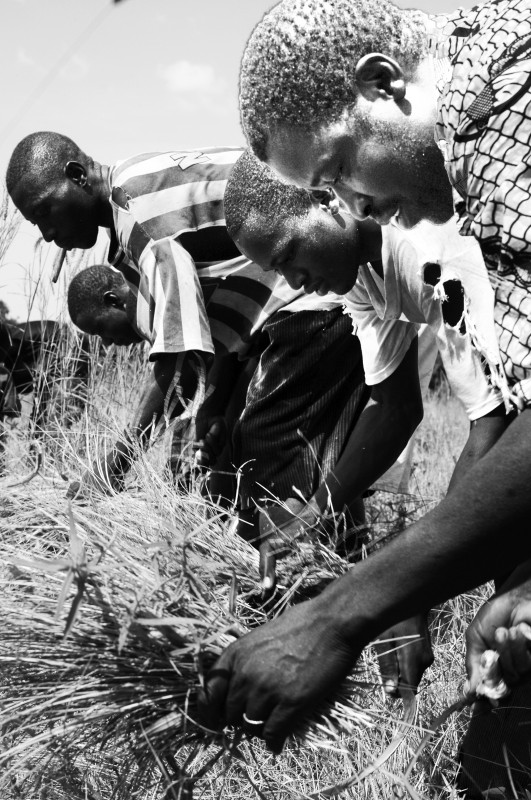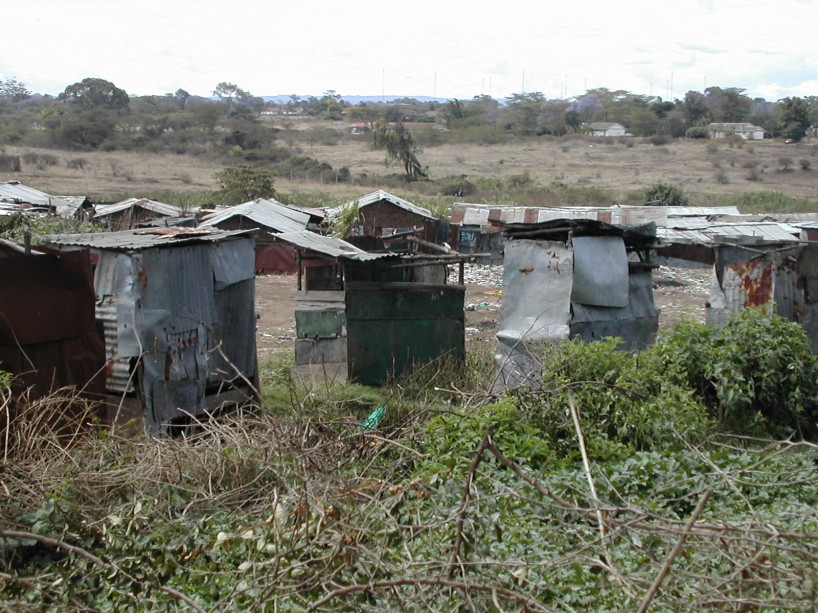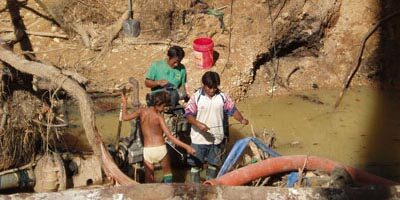
Global fuel and food demand has set off a wave of land grabbing – large companies acquiring large areas of land – in the developing world to grow export crops. The Gulf States want food for their countries, while European and American companies want land for biofuel production.
More than half of the public land in Nairobi has been subject to land grabbing. Jack Makau, a representative from Slum/Shack Dwellers International, says that many people subject to land grabbing are forced into slums.
“Nairobi has about four million people, and more than half of them live in slums. We have about 180 slums, where people don’t own the land where they live in very poor living conditions. More than half of this land was originally public land that was allocated to private developers by the state.”
Olivier DeSchutter, the United Nations Special Rapporteur on the right to food, says that the global food crisis, the financial crisis and global warming all contribute to the upsurge in land grabbing worldwide in an effort to produce more food.
“The demand for agricultural commodity has been rising significantly as a result of bio fuels production, as a result of demographic growths and as a result also of changing diets – people shifting to diets that are richer in animal proteins,” DeSchutter said in a telephone interview. “There is an increasing pressure on farmland to produce more so these organizations believe that developing large scale plantations can be one way to respond to this challenge.”
Development or exploitation?
The World Bank and its private sector branch, the International Financial Corporation (IFC), have played significant roles in facilitating the global land grab.
“The international financial institutions pave the way for land grabs,” says Anuradha Mittal, executive director of the Oakland Institute, a US policy think tank and editor of the 2010 report(Mis)investment in agriculture: The role of the International Finance Corporation in the global land grab. “They have told poor nations to change their laws to make themselves attractive for agricultural investment.”
The World Bank and other large companies justify land grabs by claiming that foreign investment will eventually be profitable to the poor countries by boosting their economies, she says.
Social tension, loss of security
DeSchutter says that depriving people of their land, and marginalizing communities that are dependent on local resources, is a misguided effort in the fight against hunger. Land grabbing compromises local people’s right to cultivate land and their right to food.
“It’s not enough just to boost production by developing large scale plantations. Doing this creates relatively little employment and deprives people who are already very poor and food-insecure from access to land and water, both of which they depend on for their livelihoods,” he said.
Land grabbing in Sierra Leone, for example, is increasing social unrest, Baxter said. “There is a great deal of tension in the villages because people are dissatisfied with their compensation packages. In the short term there can be really terrible social disruption and tension, leading to conflict.”
Tension in Ethipia is also high, says Lazar Konforti, a researcher at Équiterre, a Montreal-based environment group. “An anti-government armed group in Oromo province has declared that all land deals on their territory will be treated as acts of war. The Oromo Liberation Front’s long struggle against the Ethiopian government is often centered on the exploitation of resources and the encroachment of global capitalism on traditional lands.”
Weak laws, no recourse
Companies often justify land grabbing by claiming that the land is stagnant or not in use. Joan Baxter, a Canadian anthropologist who has lived in Africa for twenty years as a journalist and researcher for the World Agroforestry Center, explains that this stems from a deep misunderstanding about African land practices.

“The investors and the African governments like to say that the land is degraded and marginal,” she said. “They understand very little about population patterns in Africa and about how people live. There is hardly any part of Africa where people are not using the vegetation.”
Land grabbing is facilitated by the fact that much of the land in question is not officially owned by local people themselves.
“Investors are going to places where there is so-called ‘weak land governance,'” says Devlin Kuyek, a researcher with GRAIN, an NGO that works to support community-controlled and biodiversity-based farming. “This is where people are on the land and using it, but their rights are not recognized or respected formally in law. Ninety percent of Africa is under customary land practices.”
DeSchutter agrees. “Particularly in sub-Saharan Africa, where most of this land grabbing is developing now, the people who depend on the land have no legally recognized title to it. If they are driven out, there is no remedy they can use, there is no complaint they can file, and there is no compensation they can seek. There is nothing.”



